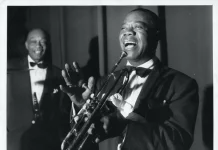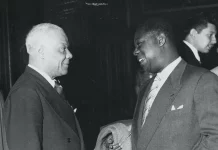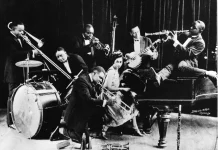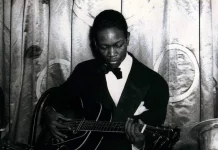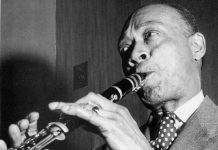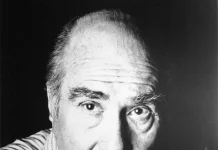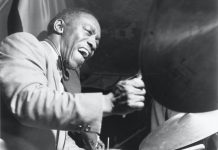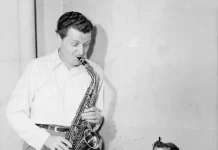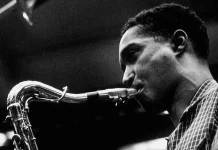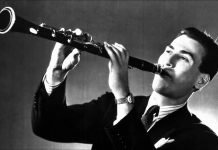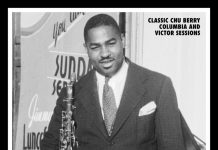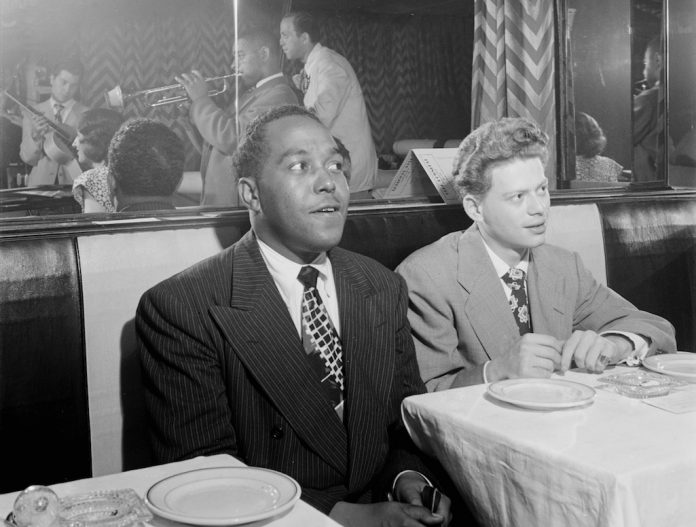
Although he was white Red Rodney was menaced in the south when he was on tour with Charlie Parker’s quintet. Before the trip Billy Shaw, Parker’s agent told Bird “You got to get rid of that red-headed trumpet player. We can’t have a white guy in a black band down south”.
“I can’t get rid of him”, said Parker. “Red’s my man. Ain’t you ever heard of an albino? Red’s an albino”, said Parker. The agent, having heard Rodney speak Yiddish to Parker, knew that he was Jewish.
Nobody mentioned any of this to Rodney, and when they arrived at their first job at Spiro’s Beach in Maryland the trumpeter was surprised to find a poster acclaiming “The King of Bebop, Charlie Parker and His Orchestra, Featuring Albino Red, Blues Singer”.
“You gotta sing the blues, Chood, baby”, said Parker. (“Chood” was Parker’s nickname for Rodney, derived from his adopted surname, Chudnik.)
“But I don’t know any blues”.
“Sing ’em anyhow”, said Bird.
“The audience was very polite”, said Red. “By the end of the tour I was getting pretty good”.
I interviewed Red, a friendly and lucid interviewee, when I met him in September 1974, and here’s the result:
“I first became involved in jazz in 1945. I was working with Elliot Lawrence at a radio station in Philadelphia. I met Dizzy Gillespie and some other big names, and through them I became interested in jazz. Prior to that I was with some big-name bands, Les Brown, Jimmy Dorsey and Benny Goodman, but jazz was something that other people did. I used to play lead trumpet in the more commercial field. When I was with Artie Shaw and some of the bands like that I was occasionally called on to play a jazz solo, but very few. I sounded more like Harry James at that time. Not nearly as good, of course, but that’s the way I sounded.
“I got involved with Dizzy Gillespie again and he introduced me to Charlie Parker and that was it. I played in some of the Goodman small groups – Wardell Gray and myself. That time I was with Benny for a whole summer. I played lead with the big band for about a year, maybe longer than that.
“Basically I played lead because you get more money, particularly in the studios or in a show in Las Vegas or something. So I did that. When you make a living in the studios, naturally I did that, although I would have preferred to be playing jazz and I had the big tone to go with that.
‘I noticed that many black trumpet players from Florida had that comprehensive action. They’re great players, so there’s something in their school system down there that produces very good black trumpet players’
“Fats Navarro had that of course, and I noticed that many black trumpet players from Florida had that comprehensive action. They’re great players, so there’s something in their school system down there that produces very good black trumpet players.
“You’re right, I did have to pretend to be a black trumpet player, only an albino black, when the Charlie Parker quintet toured in the south. Today it’s not like that, and race relations are better in the south than in the north. The south has progressed tremendously. There’s a lot of trouble racially in America, and I don’t see how the problem is going to be solved. I don’t see a solution. Both sides don’t seem to budge.
“When I was with Artie Shaw, Lips Page was my mentor. He was like a father to me, I loved him. I think jazz at that time was genuinely the only area where there was no racialism whatever. I don’t think I could say the same today, unfortunately”.
Red became a man who came back from the dead and from the depths of an outrageous criminal period to have a second distinguished jazz career in his later life. He began in jazz early, being given, when he was 13, a trumpet as a bar-mitzvah present by a great aunt.
“Harry James was my first big influence and then I discovered how tremendous Roy Eldridge was”.
Red left home in 1943 when he was 15 and over the next few months played in the bands of Jerry Wald, Jimmy Dorsey, Elliot Lawrence, Benny Goodman and Les Brown. During all this, when he was 17, came the friendship with Gillespie and the introduction to Charlie Parker.
“I heard Charlie Parker and that was it. That was what I wanted to do with the rest of my life”. Rodney, carried in the wake of Parker and Gillespie, became one of the first generation of bebop trumpeters. After spells with Gene Krupa and Claude Thornhill, he joined Woody Herman’s second herd in 1948.
It was while in Woody’s band that his fellow sideman Stan Getz gave him his first injection of heroin. Fired by Parker’s example, Red jumped in.
When Kenny Dorham left Parker’s quintet in 1949, Red was his natural replacement. He stayed with Bird for two years until the alto player’s death.
The next three years were erratic, with only a short spell with Charlie Ventura’s band. Red’s drug habit ruled his days and in 1958 he gave up music altogether, drifting in 1960 to Las Vegas to live. He was arrested several times and on each occasion sent to the federal narcotics hospital in Lexington, Kentucky.
Glancing idly through a newspaper one day, he noticed a picture of General Arnold T. MacIntyre. He was surprised to see that he was almost the general’s double. He bought a general’s uniform and had his hair dyed grey to match the general’s
Glancing idly through a newspaper one day after his release, he noticed a picture of General Arnold T. MacIntyre. He was surprised to see that he was almost the general’s double.
Not one to miss an opportunity at a time of need, Rodney bought a general’s uniform and had his hair dyed grey to match the general’s. He then had some credit cards in the unfortunate soldier’s name forged for him by a pal who was a printer. His friend also forged 20 cheques made out for $1,840 each.
Thus equipped, when he needed money, Red would walk into a bank, ask to see the manager, produce one of the credit cards, and get one of the cheques cashed. In this way he lived the high life for the best part of a year.
Keeping an eye on the general’s milieu, he discovered that the payroll for the troops at Nellis Air Force Base, all $180,000 of it, was being held at the Atomic Energy Commission in Mercury, Nevada. He drove to the camp there and asked to see the colonel in command. Thinking that Rodney had come to make a snap inspection of his camp, the colonel panicked.
He took Rodney to his office, opened the safe and gave the camp’s record books to Rodney to inspect, then leaving Red to himself with the safe left open. To his chagrin, Red found that the payroll had been moved to Nellis a couple of hours before his arrival. But he took $10,000 that he found there and some securities that were left. Amongst the securities were two sheets with scientific formulae on them. When the FBI finally caught up with him and clapped him in irons he was able to give them the sheets, which turned out to be top secret, and as a result his sentence was reduced in appreciation or, perhaps, relief.
Rodney managed to give up his addiction completely in 1978. His wife called him a “born again virgin”.

